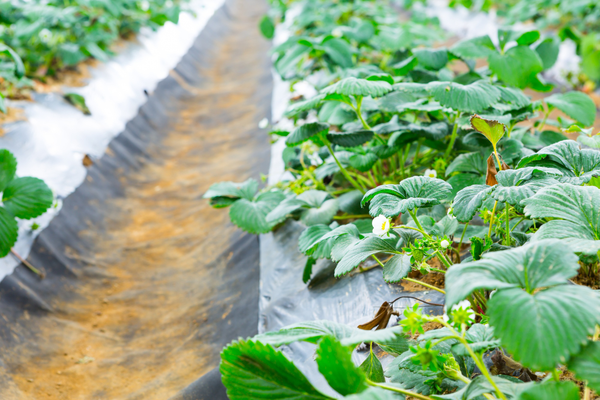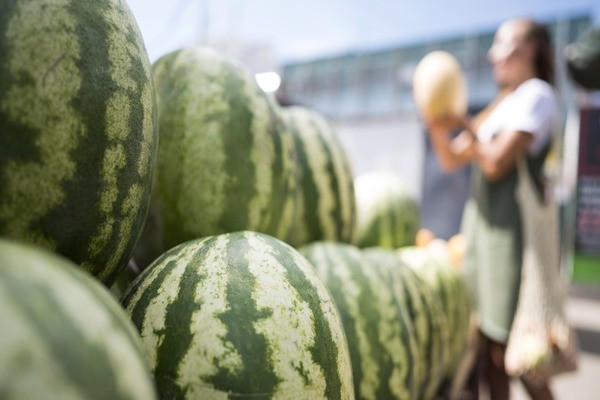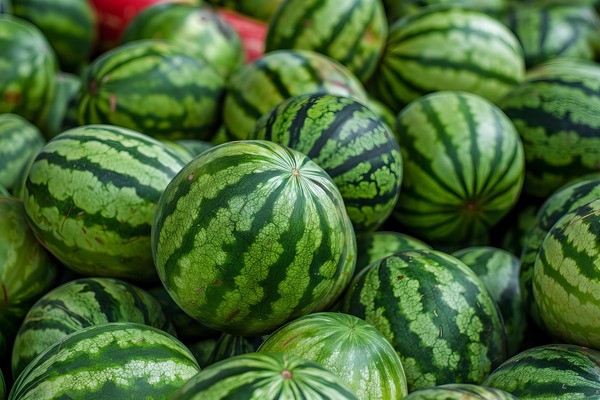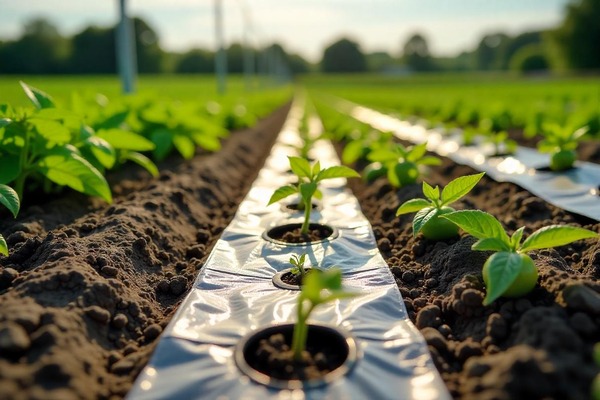
In the sprawling landscapes of Indian agriculture, where every drop of water counts and every inch of soil is precious, innovative solutions often pave the path to prosperity. Among these solutions, plastic mulch films have emerged as silent heroes, transforming traditional farming practices and bolstering crop yields across the nation.
Historical Roots and Technological Advancements
The concept of mulching, or covering soil to enhance its fertility and protect it from the elements, has ancient roots. For decades, natural materials like leaves and straw served as the primary mulching agents. However, the landscape of agricultural practices shifted with the introduction of synthetic materials, particularly plastic mulch films.
Plastic mulches, primarily composed of polymers like LDPE, HDPE, and LLDPE, gained prominence in the late 20th century. These films revolutionized farming by offering superior water resistance, thereby preventing moisture loss through evaporation. Additionally, they curtailed soil erosion, moderated soil temperature, and suppressed weed growth, leading to enhanced crop productivity.
Types and Properties of Mulch Films
Mulch films come in two primary variants: organic and plastic. While organic mulches boast biodegradability, they often fall short in durability and effectiveness compared to their plastic counterparts. Plastic mulch films, on the other hand, offer cost-effectiveness and superior performance, making them the preferred choice for modern farmers.
Key properties of plastic mulch films include their impermeability to water, thermal insulation capabilities, and durability for at least one crop season. Moreover, factors such as film thickness, width, perforations, and color play crucial roles in optimizing their efficacy for specific crops and environmental conditions.
Applications and Advantages in Indian Agriculture
Plastic film mulching, initially pioneered by Japanese scientists in the 1950s, found its way into Indian agriculture in the late 1970s. Initially employed for horticultural crops, its usage gradually expanded to encompass a diverse range of cash and grain crops, including peanuts, watermelons, sugarcane, and rice.
The advantages of plastic mulch films in Indian agriculture are manifold. They significantly reduce water loss through evaporation, preserve soil moisture, and mitigate the upward movement of salts, thereby maintaining soil fertility. Furthermore, these films create a protective barrier against soil pathogens, promote rapid seed germination, and foster robust root growth, ultimately leading to substantial yield enhancements.
Top 5 Reasons for Using Mulch Film in Agriculture
In the ever-evolving landscape of modern agriculture, innovative tools and techniques continually emerge to enhance productivity and sustainability. Among these advancements, mulch film has emerged as a game-changer, revolutionizing the way crops are grown and harvested. Far from being a simple plastic sheet laid over soil, mulch film embodies a myriad of benefits that can significantly impact the harvest. Let's delve into the top ten ways mulch film facilitates a fruitful harvest and explore why Neha Mulch Films stand out in this domain.
1. Weed Suppression
Weeds are the perennial nemesis of farmers worldwide, competing voraciously with crops for nutrients and water. Enter mulch film, a guardian against weed proliferation. By forming a barrier that blocks sunlight, mulch film stymies weed germination and growth, alleviating the burden of manual weeding and ensuring crops have the undivided attention of essential resources.
2. Moisture Retention
Water scarcity is a perennial concern for agriculture, particularly in arid regions. Mulch film comes to the rescue by curbing moisture loss through evaporation, effectively serving as a moisture-locking shield. This ensures that crops remain adequately hydrated, even in challenging environmental conditions, laying the foundation for robust growth and bountiful harvests.
3. Temperature Regulation
Plants are sensitive beings, and their growth can be stunted by extreme temperatures. Mulch film acts as a buffer, moderating soil temperatures by insulating against both the sweltering heat of summer and the biting cold of winter. This thermal equilibrium fosters optimal conditions for plant growth, promoting healthier crops and maximizing yield potential.
4. Soil Erosion Prevention
Soil erosion poses a grave threat to agricultural sustainability, washing away precious topsoil and diminishing fertility. Mulch film acts as a stalwart defender, shielding the soil from the erosive forces of wind and water. By preserving the integrity of the soil, it ensures a fertile foundation for crops to thrive and flourish until harvest time arrives.
5. Enhanced Soil Fertility
Healthy soil is the bedrock of successful agriculture, and mulch film contributes to its enrichment. Through gradual decomposition, mulch film adds organic matter to the soil, invigorating microbial activity and bolstering nutrient availability. This rejuvenation of soil fertility translates into healthier plants and higher yields come harvest season.
Why Choose Neha Mulch Films?
Neha Mulch Films stand at the vanguard of innovation, embodying excellence, durability, and sustainability. Crafted from premium materials, Neha Mulch Films offer unparalleled reliability, withstanding the rigors of agricultural life with ease. Their precision-engineered design ensures uniform coverage, simplifying installation and enhancing crop management. Moreover, Neha Mulch Films enrich soil fertility through gradual decomposition, paving the way for long-term sustainability and prosperity.
Mulch film emerges as a quintessential tool in modern agriculture, unlocking a plethora of benefits that culminate in a bountiful harvest. With Neha Mulch Films leading the charge, farmers can embark on a journey towards enhanced productivity, profitability, and sustainability, ensuring a brighter future for agriculture and beyond.
Embracing the Future of Farming
As India strides towards agricultural self-sufficiency and sustainability, the role of plastic mulch films becomes increasingly indispensable. These versatile solutions not only maximize crop yields but also conserve resources and mitigate environmental degradation. With trusted partners like Neha Mulch Film leading the charge, Indian farmers can embrace the future of farming with confidence and optimism.
In the dynamic landscape of Indian agriculture, plastic mulch films stand as testaments to the power of innovation and adaptation. As farmers across the nation harness their potential, the promise of bountiful harvests and a greener tomorrow beckons on the horizon.







